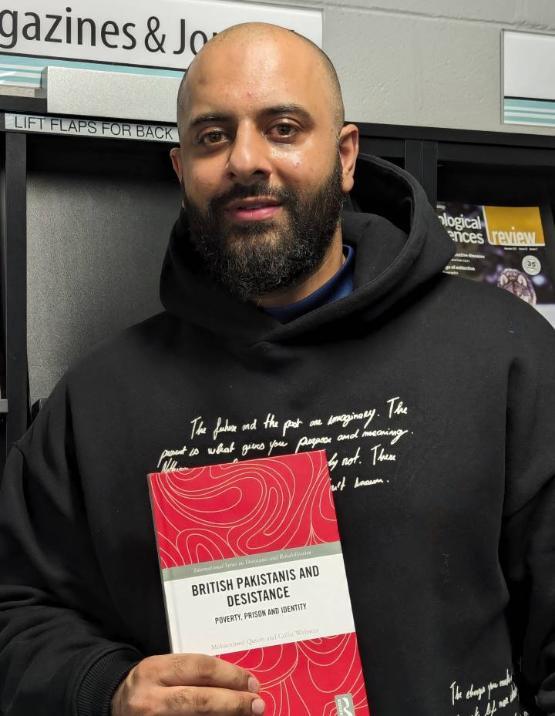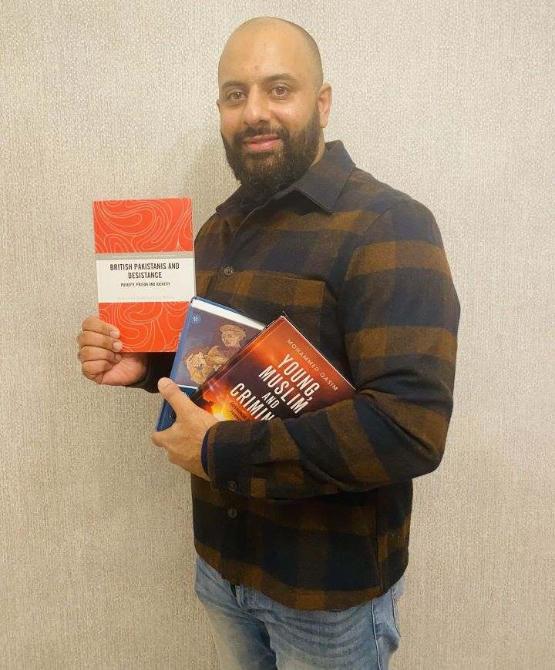Author goes inside gangs to explore lives of criminals
British Pakistani criminals need more support from institutions including mosques to help prevent them from returning to prison, says the co-author of a book on the lives of gang members.

‘British Pakistanis and Desistance - Poverty, Prison and Identity’ looks at the lives of men who offend, highlighting the events which led them to start breaking the law, continue offending and how they may struggle to move away from a life of crime once they are released from prison.
Dr Mohammed Qasim MBE, an expert on gang culture, race and crime and a visiting research fellow at the University of Bradford’s School of Social Sciences, said: “Most of the people we spoke to were genuinely remorseful of their crimes.
They said there was a lack of support for them finding work when they came out of prison
“We, as a Muslim community, need to be doing so much more to support this transition from somebody in prison to them stopping offending altogether. We have a duty to support them accordingly.
“The institutions need to better support their transition, mosques need to work closer with them and provide them with the support they require, even if it is simply signposting them.
“We need a proper support structure when they are released to society, so they don’t re-offend.

“The Islamic faith has the potential to support young men from desisting from criminality and this needs greater attention.”
Dr Qasim, pictured above, lives in Swansea but grew up in Manningham, Bradford, where he had previously gained access to a group of young Muslim men, known as The Boys, many of whom went onto commit crime. He reunited with some of the men and was introduced to younger members of the group for research for the book, which he co-wrote with Colin Webster, Emeritus Professor of Criminology at Leeds Beckett University, are co-authors of the book.
'Foolish mistakes'
The authors argue that the public perception of male British Pakistani Muslims has changed over the last 35 years, from being seen as law-abiding people to now often considered to be associated with drug dealing and grooming girls. They claim young Muslim men are increasingly linked to criminality and are seen as violent and aggressive.
In the book, the authors write: “The general social profile of the prison population is disproportionately found among young Pakistani men.
“British Pakistani Muslim young men who affected upon re-entry from prison reported that ‘prisons were made for people like us’.”
Dr Qasim added: “Desistance is to try to stop people from offending. The reason why so many people have been to prison is often because of foolish mistakes and in some cases because of the pressures of making money illegally. These people need support and care.
“It’s important to support these people and show that there are other ways to make money and live law-abiding lives, so many of them are gifted young men with tremendous entrepreneurial skills.
Impact of imprisonment
The book is one of the first studies of desistance with British Pakistanis. It features accounts from both first and second-generation men who live in Bradford. The older men reveal what life was like for them when they arrived in the UK from Pakistan and worked in textile mills in Bradford. It updates the lives of these men, now in their 60s, who left the mills and worked in industries including retail and catering. They are asked about raising sons in a social environment of unemployment and poverty.
The study looks at those who were jailed for their part in the 2001 Bradford riots and what impact their imprisonment had on their lives 20 years later. It discusses the early imprisonment of people and the impact that it has on them.
Dr Qasim says he would like to hear more from those who have been released from prison and rehabilitated instead of returning to a life of crime.
He added: “The findings have been really interesting. Increasing numbers of British Pakistanis have become more interested in their faith while they have been in prison and this in some cases is the reason why they desist from offending behaviours.”
Dr Qasim’s previous books include ‘Young, Muslim and Criminal: Experiences, Identities and Pathways into Crime’.
He features as an interviewee on VICE’s ‘The War on Drugs Show: The Albanian Mafia’. The programme has been viewed more than five million times in less than a year on YouTube.
British Pakistanis and Desistance - Poverty, Prison and Identity by Dr Mohammed Qasim and Colin Webster, published by Routledge, is available now from routledge.com/British-Pakistanis-and-Desistance-Poverty-Prison-and-Identity/Qasim-Webster/p/book/9780367677664
